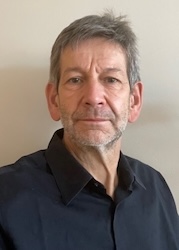This seminar will take place on May 20 at 15:00. The seminar will be in a hybrid format with:
- in-person session in the IST Alameda Campus, Department of Engineering and Management's Meeting Room
- online, via Zoom https://videoconf-colibri.zoom.us/j/92199524408
Our seminars are free to attend and open to everyone. Please share with whomever may be interested.

Summary
Energy efficiency in buildings emerges as a crucial tool in achieving climate objectives related to reducing greenhouse gas emissions. Increasingly, the potential of Energy Performance Contracts for implementing energy efficiency measures is being recognized, with the assistance of Energy Service Companies (ESCOs) or facilitators. Clustering buildings presents an additional advantage, as it allows risks for ESCOs to be spread across multiple projects, thus catalysing both short-term and long-term initiatives. Moreover, the larger absolute investment in such clustered projects makes them more attractive to financial partners, a factor that can be leveraged through adapted business models. We explore two cases related to the pooling of buildings for both higher and secondary education institutions, demonstrating the potential impact of collaborative approaches in addressing sustainability challenges. We will also demonstrate how the Multiple Level Principle can facilitate systemic change. In the case of Energy Efficiency in buildings, it is crucial to involve all building users, each with their perspectives, in the proposals. This approach enables simultaneous progress towards multiple Sustainable Development Goals (SDGs).
Speaker's bio
Dirk Franco received a PhD in Organic Chemistry from the Hasselt University (UHasselt, Belgium) in 1990. He then worked at both the XIOS UAS Limburg (current PXL) and the UHasselt. He has been program director of the postgraduate Environmental Coordinator level A at Hasselt University since 1995. In 2014, Dirk founded the unique postgraduate Energy Efficiency Services within the PXL, in which technology, new business models and the need for communication are central pillars for transition thinking. Currently, after being general director of the XIOS UAS Limburg from 2006 to 2013, Dirk is a part-time professor at Hasselt University, where, in addition to basic chemistry, he also teaches environmental technology, sustainable development and environmental chemistry. He also works within the PXL as a policy advisor with a focus on sustainability within the organization, co-leading the Energy Quick Scans within the Energy Efficiency Services (EES) process of the PXL.
Personal homepage: link
